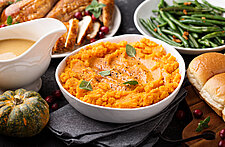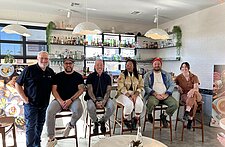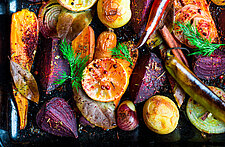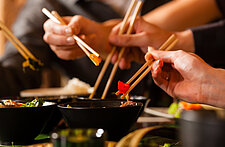It’s no secret that the nationwide measures to stop the spread of COVID-19 have had devastating effects on bars, restaurants, and breweries reliant on dine/drink-in traffic. While sales of on-site premises alcohol have crashed, that does not mean people have stopped drinking. Quite the opposite, in fact, as the demand for alcohol is an ever-growing commodity by an anxious public stuck at home, allowing for new, rarely-before-seen trends to emerge within the industry to help best serve a needy public and keep businesses afloat.
According to Nielsen data, U.S. sales of alcoholic beverages have risen 55% in the third week of March with spirits having the highest increase with sales up 75%, followed by wine at 66% and beer at 42%, compared to the same period in 2019. This dramatic spike in sales is due in large part to people panic-buying and stocking up on alcohol – right alongside milk and toilet paper, of course – ahead of an indeterminate time at home during the nationwide stay-at-home orders.
Stay ahead of the changing industry with In-sight, learn more here!
From a 2019, pre-COVID-19 poll, relaxation was the biggest reason participants gave to drink alcohol with 70% of U.S. adults agreeing that they drink it to unwind, compared to 50% for taste and 44% for fun. This is a stressful time for people of all ages, but for the already overstressed Millennials and Gen Zer’s – who as a majority of 18-34-year-olds reportedly experienced higher than average levels of anxiety and depression before COVID-19 – they are in need of serious relaxation more than ever. Soft drinks and coffee have always been staple daytime beverages, with tea dominating the space of relaxation drinks, but with days and hours blurring together, the trend now is for these younger adults to settle in with a drink for at-home happy hours with friends via Zoom earlier and earlier.
Adult beverage brands are dialing up their relaxation properties to position themselves as an antidote to this stress by introducing or playing up benefits of “calming” ingredients, like L-theanine, Aloe vera, and lemon balm. Brands can take inspiration from how soft drinks use blends of these adaptogens to support an implied mood benefit. For example: marketed for “me time” by emphasizing both the fun nature of drinking wine and the calming effects associated with tea, we’ve seen brands create wine and tea infusions featuring calming flavors and warming spices.
GET COMFORTABLE
When we’re stressed, we turn to what’s comforting and familiar. The same goes for alcohol purchases in uncertain times with retail stores reporting customers gravitating towards old favorites as opposed to trying something new. Beverage Dynamics Magazine reports a rise in 30-racks of beer, jug wine, vodka, and boxed wine as the best-sellers at retail, as well as sweet, comforting flavors like strawberry, chocolate, and vanilla.
Related: Foodservice Adaptations in the Age of COVID-19
The craft industry has been on an upswing for years, encouraging brewers and distillers to experiment with flavors knowing their fan bases were eager to jump on new, fun trends, which has been a boon for the evolution of alcohol flavors and styles. In the age of pandemic, however, people have gone back to basics to simple, universal flavors and oftentimes choosing mainstream quantity over craft quality. Shoppers are buying what they know they like already and are less willing to take chances when concerns like price in a time of record-breaking unemployment top of mind more than ever.
HOMETOWN HEROES
Finding comfort in old favorites can actually work in favor for local breweries who have built a loyal customer base in their communities. According to the National Beer Wholesalers Association, which represents almost 3,000 independent beer distributors, the beer, wine, and liquor industries are typically split with 80% off-premise sales and 20% on-premise sales. Now, with bars closed, the majority of sales is whittled down to stores that sell alcohol, which puts breweries with draft-only tasting rooms at a huge disadvantage and forces them to start bottling, canning, or growler filling to keep up.
Even with tasting rooms closed, breweries are still able to brew and sell from a pick-up only, curbside capacity, and because of hometown loyalty, avid craft fans are keeping their favorite independent places alive in an uncertain time. Many breweries are trying COVID-centric tactics to stay on people’s radars, like Wild Heaven Brewery in Georgia naming two of their beers "Don't Stand So Close to Me" and “Fauci Spring,” and Departed Soles Brewery in New Jersey who teamed up with a local bakery, Mr. Cupcakes, to create a red-velvet-cupcake-flavored beer and sell care packages of cupcakes and beer together to capitalize on the public’s need for comfort while feeling good about supporting two local businesses.
Delivery is a major new emerging trend and key driver for alcohol sales during the pandemic. While liquor stores have been classified as essential businesses, the fear of leaving home has sent online sales skyrocketing up 243% over last year, outpacing in-store sales, according to the NY Post. This is the time for alcohol delivery apps, who saw historic sales in the past month, to really shine. According to Eater, both wine ordering app Vivino and alcohol ordering app Drizly saw sales shoot up about 300% from earlier this year with consumers spending 25-50% more per purchase in March.
Depending on the state and thanks to many loosening regulations temporarily for alcohol delivery, restaurants can include alcohol as part of their food deliveries. Independent establishments and chains, like Buffalo Wild Wings, who previously did/could not include alcohol in delivery orders are now implementing alcohol. Like breweries, restaurants are also trying out COVID-centric tactics to keep people interested, like Manhattan’s Patent Pending that delivers cocktails with bags of chips and a roll of toilet paper for orders over $50. A big trend is all about bringing the bar experience home to consumers who desire craft cocktail with pre-packaged cocktails in to-go containers or kits of individually packaged ingredients that help preserve the integrity of the flavors and give consumers the added fun of DIY at home.
Receive the latest updates across beverage categories with the Weekly In-sight Newsletter!







